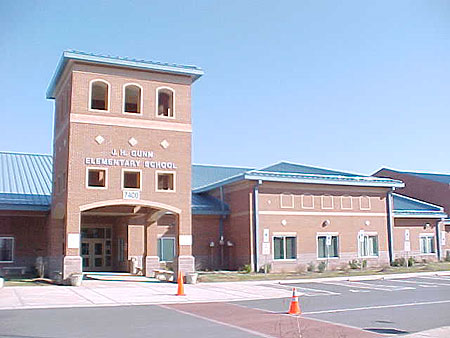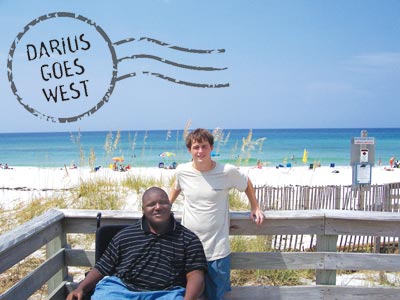
When students returned to campus on August 23rd, I was amazed by the physical changes some had undergone over the course of the previous 2.5 months. Student who finished 6th grade a few inches shorter than me were now a few inches taller than me. It brings to mind my parents' reaction after not seeing my children for a few months. They didn't seem to change much in my mind, but its much different when you see them every day. As evidenced by the need for bigger clothes, larger shoes, endless visits to the grocery store, etc., I'm sure everyone reading already knows that their child has been growing at a rapid pace. But, have you ever stopped and thought about how much our middle school children have changed (or will change) over the course of a 36-month period? And, how does this time of significant physical growth impact a child's ability to be successful in the classroom?
In the spirit of full disclosure, its important to note that I have more than just a professional interest in this subject. I also have an 11 year-old son, and "puberty" is an important topic in his 6th grade world. He often wonders how long it will be until he's taller than me. It won't be very long, but, as I remind him often, being a little taller than me still doesn't make him very tall. I'd be lying if I said I fondly remember my years of development in middle school. I do remember being jealous of the boys who started shaving long before I did, feeling horrible when I'd answer the phone and one of my sister's friends would say "Hi Sue," and fretting over each and every pimple. In hindsight, I'm guessing that I spent much more time thinking about those things instead of what I needed to do in Math, Science, Social Studies, and Language Arts (not to mention Home Economics...judging from the baseball pillow I sewed for my "final exam" grade, I didn't spend nearly enough time focused on Home Economics).
So, how much does a child change in the middle school years on a physical level? Just in terms of height, the American Academy of Child Adolescent Psychology (we'll call them AACAP to avoid having to spell Psychology again), notes that the average person experiences a 20% growth spurt in one 24 to 36 month period between 10 and 15 years old. For males, this includes 10-11 inches in growth and, for females, it includes 8-11 inches in growth. I'll leave all of the other physical changes for discussion in Health class, but its worth noting the sheer magnitude of the physical changes that are taking place.
As for the non-physical change, the aforementioned AACAP notes that the changes taking place between 9-15 years old can be divided into for main areas: movement towards independence, future interests and cognitive changes, sexuality, and morals, values, and self-direction. Here are some of the development highlights from each area:
-Movement Towards Independence: sense of identity, focus on self, moodiness, and improved expression
-Future Interests and Cognitive Changes: limited thoughts of the future, improved ability to understand complex problem
-Sexuality: Again, I feel more comfortable having you explore those changes on your own:)
-Morals, Values, and Self-Direction: tests rules and limits, selects role models, demonstrates consistent evidence of a conscience
For those of us who know and love middle school students, none of this should come as a surprise. So, what's the point? Here are some of my thoughts:
-It demonstrates the compassion, patience, and courage of middle school teachers across the United States, and particularly those at PDS. Given what they are up against, it is amazing that middle school teachers are able to teach anything, especially those high level concepts that our teachers cover on a daily basis:)
-It reinforces the challenges that you might be facing at home with your middle school child. As a parent, "moodiness" and "focus on self" come to mind immediately!!
-While I would never "reason away" behavior, it definitely provides some explanation of the decisions middle school students make. It also reinforces the need for firm boundaries and structure, especially in a school setting. If middle school students are "testing limits," they definitely need to know what the limits are.
I look forward to your comments. Thanks again for reading,
Mike
**A Final Note: the picture has nothing at all to do with middle school or adolescent growth...just a funny picture of my two youngest children. My middle school age child would be mortified if a picture of him doing something funny was on here:)













.JPG)



